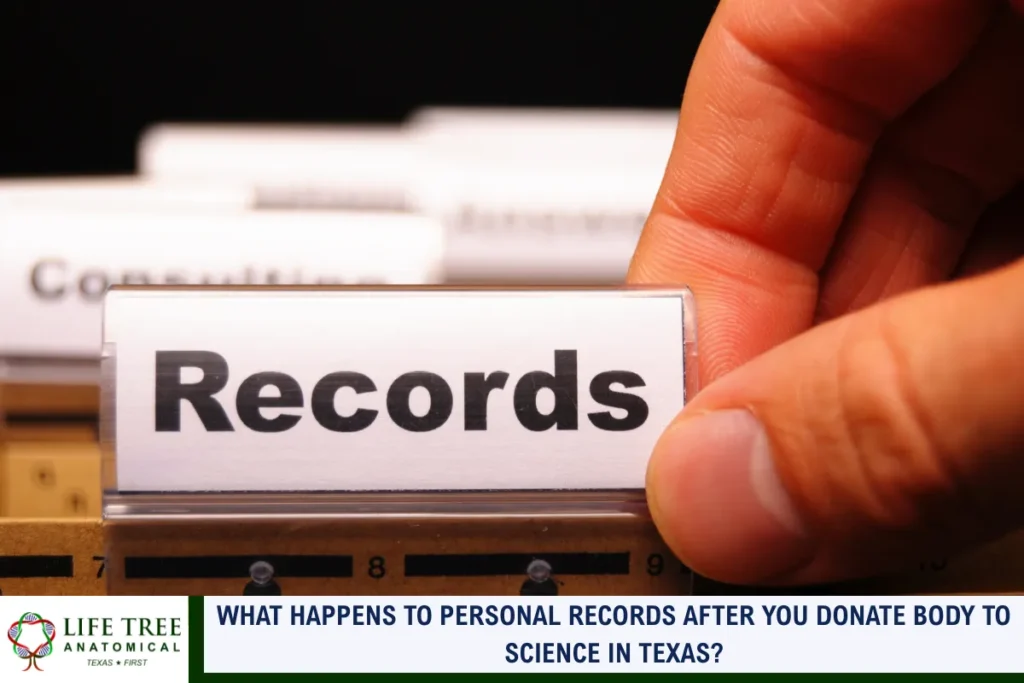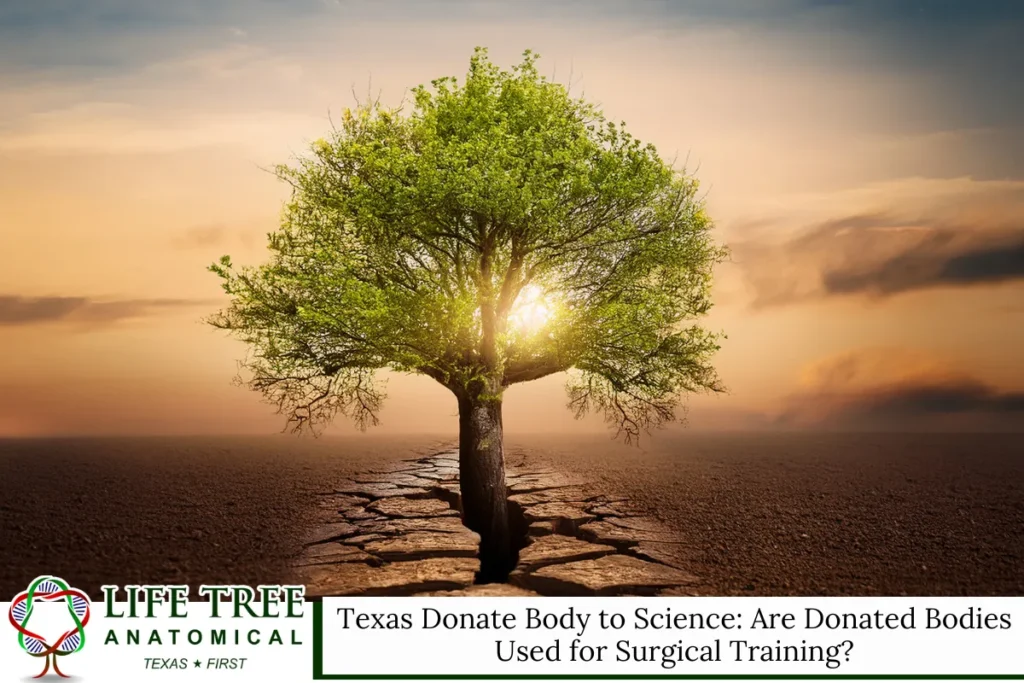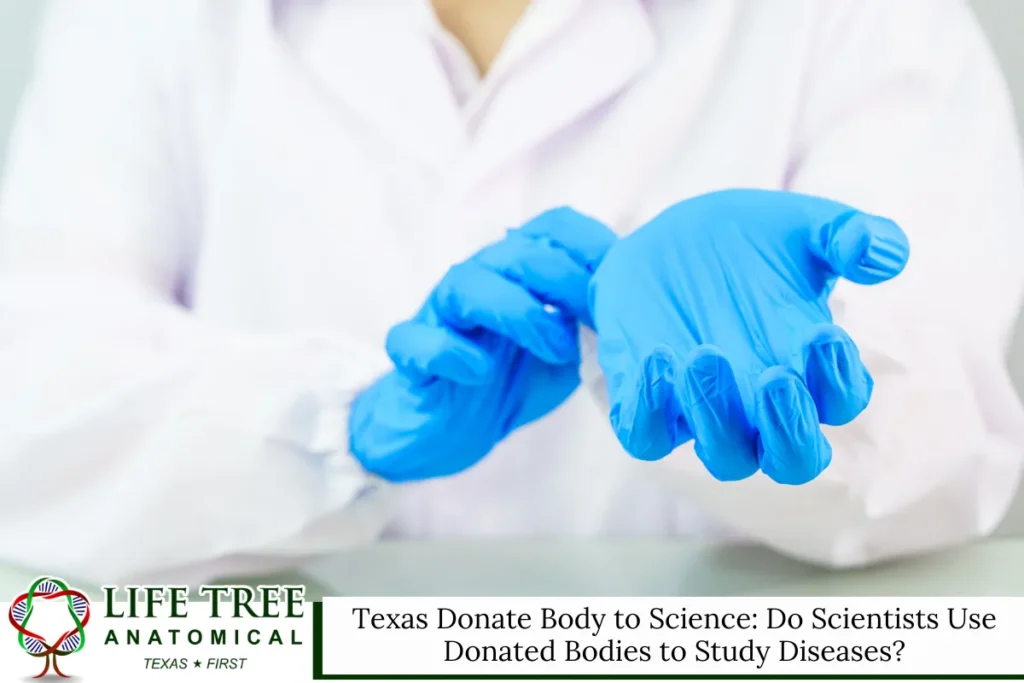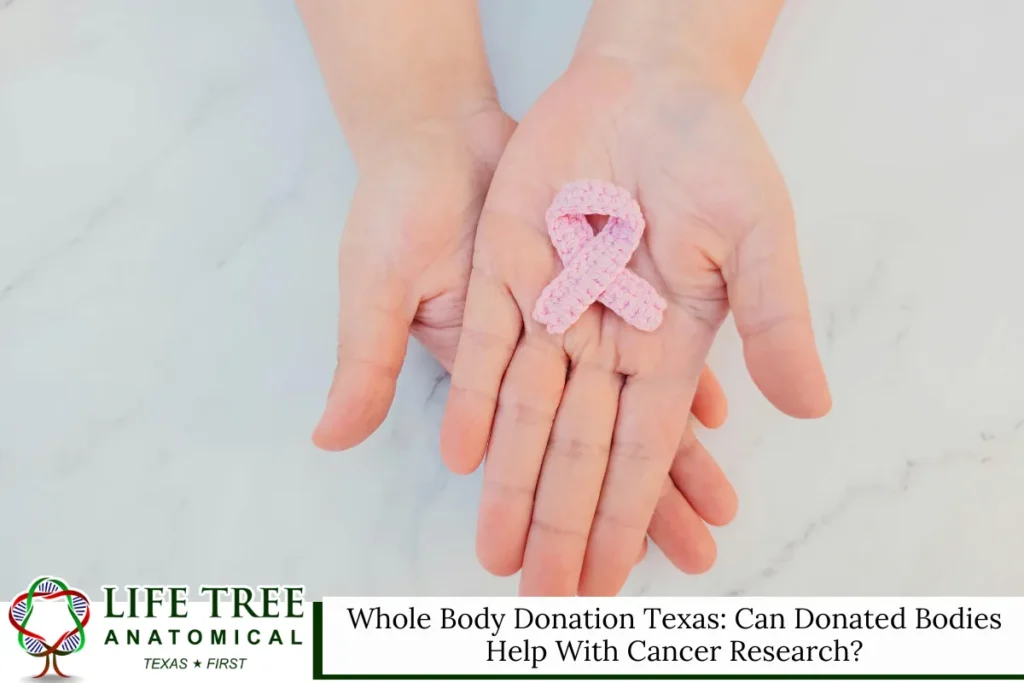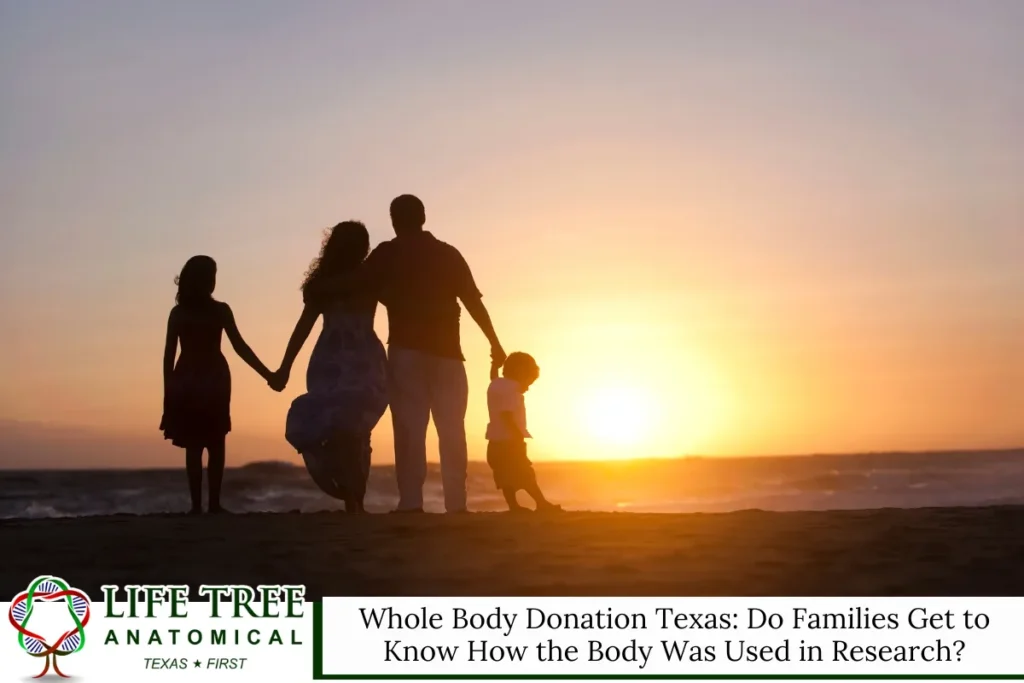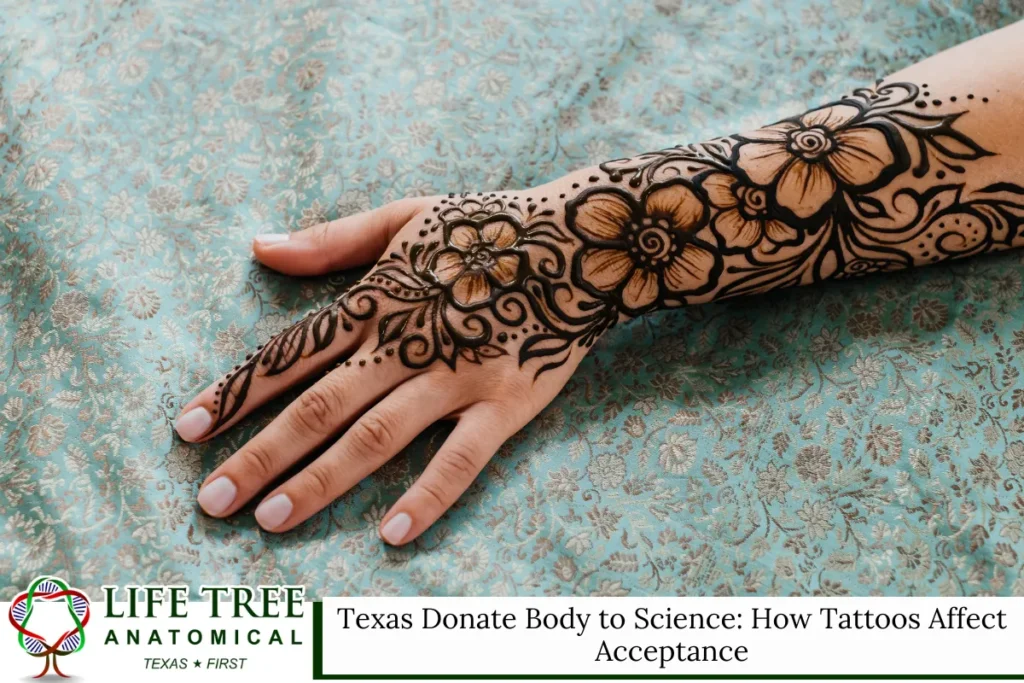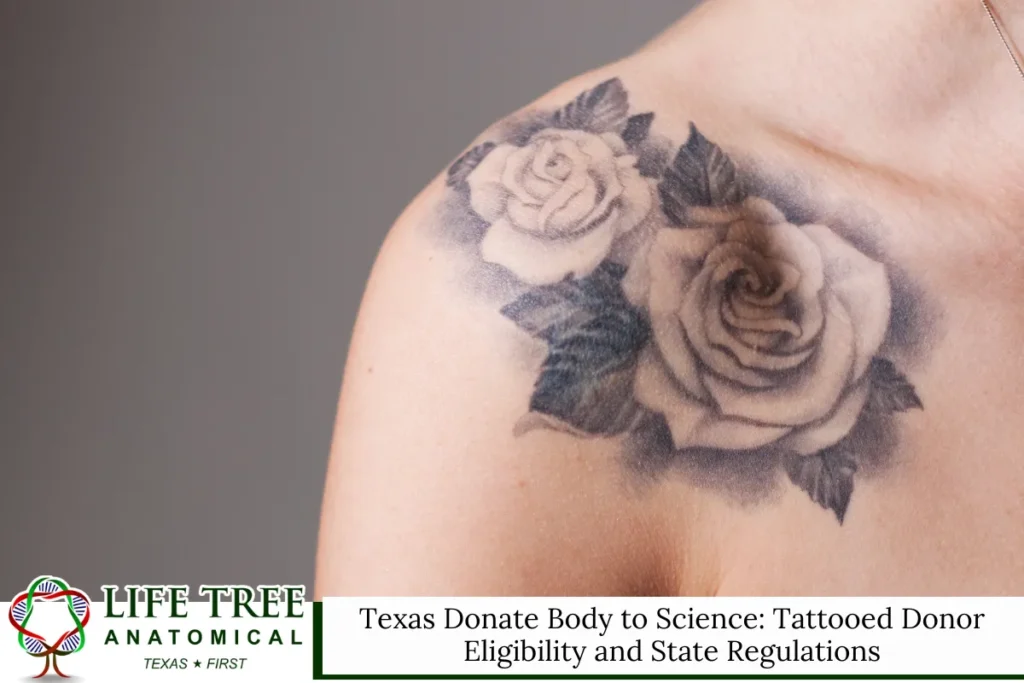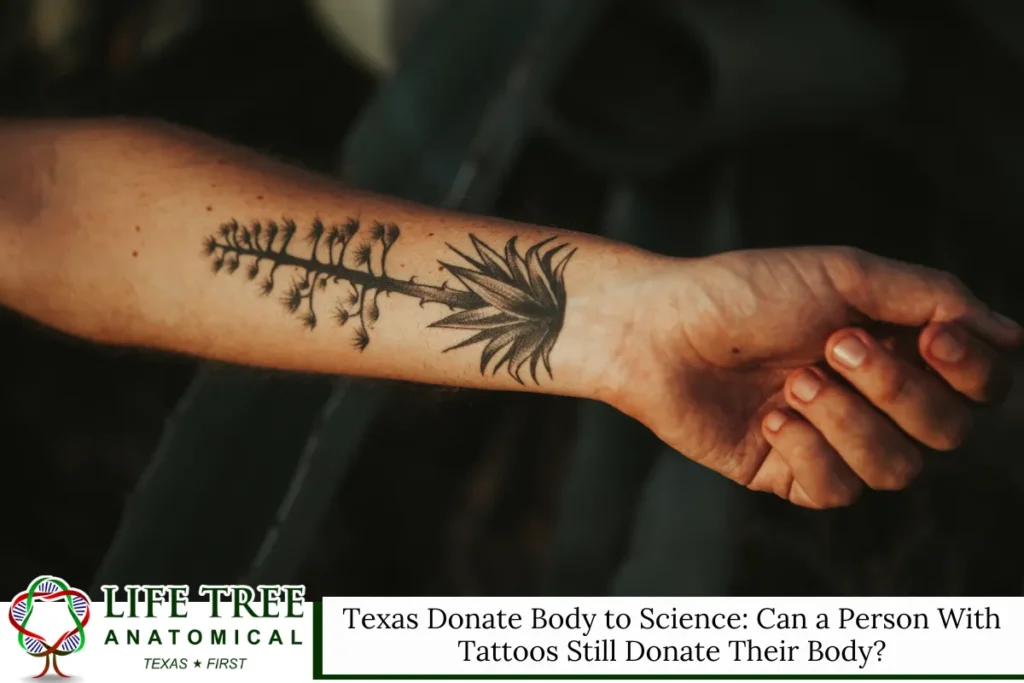Donating your body to science in Texas is a powerful way to support medical education and research, but many people ask, “What happens to my personal records after I donate my body to science?” Whether you’re considering a whole body donation or registering with a willed body program, it’s essential to understand what happens behind the scenes—including how your personal and medical information is stored, accessed, and protected.
In this article, we’ll walk through the entire record-handling process, from the moment you register as a donor to how records are maintained long after your remains have served their purpose in science. If you’re asking, “Should I donate my body to science?” or “What happens to my identity after death?”—you’re in the right place.
What Is Whole Body Donation and How Does It Work in Texas?

Whole body donation allows individuals to contribute their remains for scientific, medical, or educational purposes after death. In Texas, this process is governed by both medical institutions and state law. The most common path is through a willed body program affiliated with a medical school, university, or licensed nonprofit.
The Role of Willed Body Programs
These programs are designed to accept body donations for anatomical education and research. Institutions rely on them for training future doctors, conducting scientific studies, and even advancing forensic science. Texas has multiple approved programs, and each must comply with strict state regulations concerning documentation, ethical standards, and personal record management.
Who Can Donate?
Most adults can donate their body to science in Texas, provided they meet certain criteria related to medical history, cause of death, and condition at the time of passing. Consent is typically given through a signed donor form or through a legally authorized representative if the donor was not pre-registered.
Legal Framework That Protects Donor Information
When you donate your body to science in Texas, your personal records are protected under the Texas Health and Safety Code, specifically Chapters 691 and 692A. These laws outline the proper way to document, store, and handle the personal data of every donor in the state.
The Texas Uniform Anatomical Gift Act (Chapter 692A)
This statute provides the foundation for making an anatomical gift. It defines who may authorize the donation, what kind of records must be kept, and the legal responsibilities of organizations that accept the donation. It also ensures donors or their next of kin have the right to revoke consent or update information at any time before death.
Oversight by the State Anatomical Board
The Texas State Anatomical Board oversees the entire donation process. It regulates programs to ensure all donor records are properly handled, protected, and preserved. The Board also ensures that programs follow best practices in maintaining the dignity of donors and their information.
What Personal Records Are Collected During Body Donation?
When an individual registers for a whole body donation in Texas, the program collects a variety of records to verify identity, fulfill legal requirements, and prepare for proper anatomical study. These records can include:
Identification Information
- Full legal name
- Date of birth
- Social Security number
- Government-issued identification copy
Medical and Health History
- Cause of death
- Pre-existing medical conditions
- Surgical history
- Infectious disease screening
Legal Documentation
- Signed donor consent form
- Witness signatures (or notarization if required)
- Chain-of-custody documentation upon transfer of the body
- Disposition instructions (such as cremation or ash return)
What Is a Chain-of-Custody Record?
A chain-of-custody record documents each step of the body’s journey—from collection at the place of death, to transportation, to use in educational institutions, and ultimately to cremation or interment. This document helps track the remains and ensures full transparency in how the donation is used.
How Long Are Personal Records Kept in Texas?

Under Texas law, personal records related to body donation must be retained indefinitely. Medical schools and other organizations that receive donated bodies are legally obligated to keep permanent records for every donor.
Why Records Must Be Retained
Keeping records permanently serves several purposes:
- Legal compliance with state and institutional regulations
- Documentation for families or next of kin
- Internal tracking and audit by state agencies
- Ethical accountability in case of future investigation
This permanence ensures that donor information can be accessed by authorized parties for medical, legal, or academic reasons, even many years after the donation.
Who Has Access to Donor Records After Death?
While body donation is a generous act of public service, privacy remains a key concern. Not everyone can access a donor’s records. Texas law limits access to certain parties under specific conditions.
Authorized Personnel Only
Only individuals involved in the program—such as medical school staff, researchers, or designated transportation services—may access personal records. These individuals must be trained in data privacy and adhere to institutional policies protecting donor confidentiality.
Family and Next of Kin
In most cases, next of kin can request copies of relevant documents, such as:
- Confirmation of donation
- Cremation certificate
- Proof of final disposition
They may also request additional information related to the donation if the donor previously granted them written permission.
Protecting Donor Privacy in a Digital Age

As body donation programs modernize, digital storage of records is becoming more common. Institutions must now take steps to ensure that digital and paper records alike are stored securely.
How Programs Ensure Record Security
- Encrypted databases for donor files
- Secure physical storage for original documents
- Access logs to monitor who reviews the files
- Restricted user permissions for staff
Programs may also be audited to confirm compliance with privacy regulations and ethical standards.
What Happens to the Body and Records After Donation?
Once the donation is accepted, both the physical remains and the associated personal records follow a carefully structured process. This phase is guided by ethical responsibilities, legal mandates, and medical needs.
Use in Medical Education and Research
Donated bodies play a vital role in:
- Medical student anatomy training
- Surgical technique development
- Research in disease processes
- Forensic analysis and criminal justice training
Throughout this period, the donor’s identity is typically anonymized. Most institutions assign a unique tracking number to the body, separating identifying details from educational use to maintain confidentiality.
Continued Record Tracking During Use
Even while the body is in use, donor files remain active and must be updated. Any transfer between facilities, research notes, and the final disposition of remains are documented. This ensures the donor is accounted for throughout the entire process.
Ethical Oversight and Transparency
Willed body programs are held to high ethical standards. Regular audits, staff training, and detailed logging of every step—from initial intake to final cremation—are all part of maintaining public trust and donor dignity.
What Happens to the Remains After Scientific Use?

Once the educational or research need is fulfilled, the remains are prepared for final disposition. This typically involves cremation, but options vary depending on the donor’s or family’s preferences.
Standard Cremation Process
Cremation is the most common method used after a whole body donation in Texas. The process is handled by the institution or a certified funeral provider at no cost to the family. In many cases:
- Cremation occurs within 1–2 years after donation
- Ashes are either returned to the family or interred by the institution
- A certificate of cremation is issued and added to the donor’s file
Return of Ashes to the Family
If requested, the donor’s ashes are returned to the next of kin. Families are notified when cremation is complete and provided options for receiving the remains, either by in-person pickup or delivery through a licensed service.
Permanent Documentation of Final Disposition
Details about the cremation date, location, and return or interment are recorded as part of the donor’s permanent file. This ensures complete transparency and allows the family to obtain any necessary documentation for legal or personal purposes.
Can Donors or Families Revoke Consent or Change Instructions?
Yes. Under Texas law, donors have the right to revoke or change their donation instructions at any time before death. Similarly, family members may decline the donation if the decedent did not provide clear, documented consent.
How to Update or Cancel a Donation
Donors may:
- Submit a written revocation to the donation program
- Remove themselves from the state donor registry
- Notify their family and legal representative of the change
If a donor passes away before revoking consent but the form lacks proper witnessing, the family may have legal grounds to refuse the donation.
What Families Should Know Before Donating a Loved One’s Body

Donating a loved one’s body is a meaningful decision, but it comes with responsibilities and expectations. Understanding how records are handled can offer peace of mind and help families navigate the process confidently.
Know the Terms of Donation
Before agreeing to a donation:
- Review the institution’s policies on record retention and privacy
- Confirm what documents will be provided to the family after donation
- Understand how long the body will be used and when ashes will be returned
Ask About Access to Records
Families can ask:
- Who can access the donor’s personal records after death?
- Will I receive a copy of the donation paperwork?
- How will I be notified when the donation is complete?
Clear answers to these questions are an important part of the informed consent process.
How Texas Programs Respect Donor Dignity and Privacy
Texas institutions place great importance on treating donors with respect, and this commitment extends to how records are handled.
Anonymity in Research and Education
While donor information is securely recorded and retained, it is rarely shared with students or researchers. This maintains privacy and upholds ethical standards. Donors are typically referred to by a case number rather than a name.
Permanent Record Integrity
Even decades after a donation, institutions are required to keep a secure record of the donor’s file. These records are:
- Maintained in compliance with Texas Health and Safety Code
- Audited for accuracy and proper access
- Preserved in both physical and digital formats, depending on the institution
This ensures that every donation is traceable, lawful, and properly honored.
Final Thoughts for Texans Considering Whole Body Donation
If you’re wondering, “Should I donate my body to science in Texas?”—it’s worth knowing that this generous act is supported by a clear legal and ethical structure. From the first signed form to the final return of ashes, your identity and personal records are carefully managed, tracked, and protected.
Your donation supports future healthcare professionals and researchers while leaving a legacy of public service. By understanding how personal records are handled, you and your family can make an informed and confident choice.
Thinking “Where to Donate My Body to Science?” Contact Life Tree Anatomical – Texas Body Donation

If you’re asking yourself, “Where can I donate my body to science in Texas?” or you’re exploring your options for whole body donation, Life Tree Anatomical is here to guide you with professionalism, care, and transparency.
We proudly serve the entire state of Texas, offering individuals and families a simple, ethical, and fully regulated path to contribute to medical science. Whether you’re planning ahead or making arrangements for a loved one, our willed body program ensures that your gift makes a meaningful difference in education and research.
Why Choose Life Tree Anatomical?
- Licensed and compliant with Texas Health and Safety Code
- Fully transparent record-keeping and donor privacy practices
- No cost to the donor or family for transportation, cremation, or return of ashes
- Cremated remains returned upon request within 12–18 months
- 24/7 service available across Texas, with bilingual support
When you donate your body to science through Life Tree Anatomical, your personal records are secured, your wishes are honored, and your legacy lives on in the education of tomorrow’s doctors and scientists.
Get in Touch Today
If you’re ready to register for body donation or just have questions about the process, we encourage you to reach out today. A short phone call or message can help you take the next step toward leaving a lasting impact.
📞 Call us now at (512) 402-8533
📩 Or fill out our secure contact form on our website — we’ll walk you through every detail.
Whether you’re searching for “how to donate my body to science in Texas” or looking for a local, trustworthy partner, Life Tree Anatomical is here for you every step of the way.
Frequently Asked Questions
1. Can I still donate my body to science if I have an infectious disease?
It depends on the program and the disease. Certain infectious conditions—like HIV, hepatitis B or C, or active tuberculosis—may disqualify a donation due to safety regulations. However, each case is reviewed individually, and some programs may accept donors with controlled or historical conditions for specific types of research. Always check with the donation facility for eligibility.
2. Will my body be transported out of state?
Most licensed Texas programs, including Life Tree Anatomical, keep donations in-state for medical schools and research centers across Texas. However, in rare cases, remains may be transferred to approved out-of-state institutions for specialized research. These transfers are documented and must comply with state and federal transport laws, including proper chain-of-custody records.
3. Can I donate my body to science if I’m also an organ donor?
You can register as both, but organ donation for transplant typically takes priority. If organs are successfully recovered for transplant, it may limit the ability to donate your full body to science afterward. However, if organs are not used or the body remains intact, whole body donation may still be possible. Registering for both is allowed, but it’s important to communicate with your family and both organizations.
4. How soon after death does the donation need to happen?
Timeliness is crucial. In general, body donation programs require notification within 12 to 24 hours after death. Delays can impact the condition of the body and may result in the donation being declined. Pre-registration helps streamline this process, and families are given clear instructions on what to do at the time of passing.
5. Are there religious or cultural restrictions on donating my body to science?
Most major religions—including Christianity, Judaism, Islam, Buddhism, and Hinduism—support or permit body donation if it’s done respectfully. However, cultural practices and family beliefs vary. It’s best to discuss your wishes with your loved ones and spiritual advisor to ensure your decision aligns with your values. Donation programs in Texas make every effort to honor cultural considerations and final wishes, including burial or ash return when requested.
Read Privacy Laws in Texas When You Donate Your Body to Science

